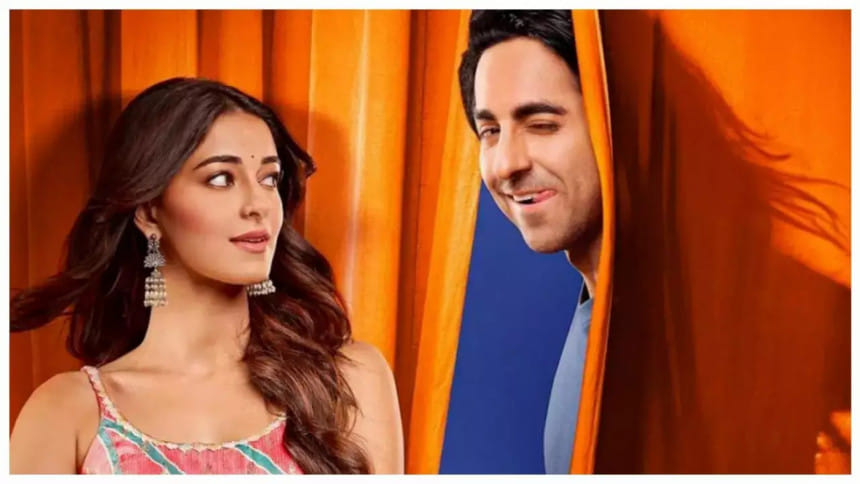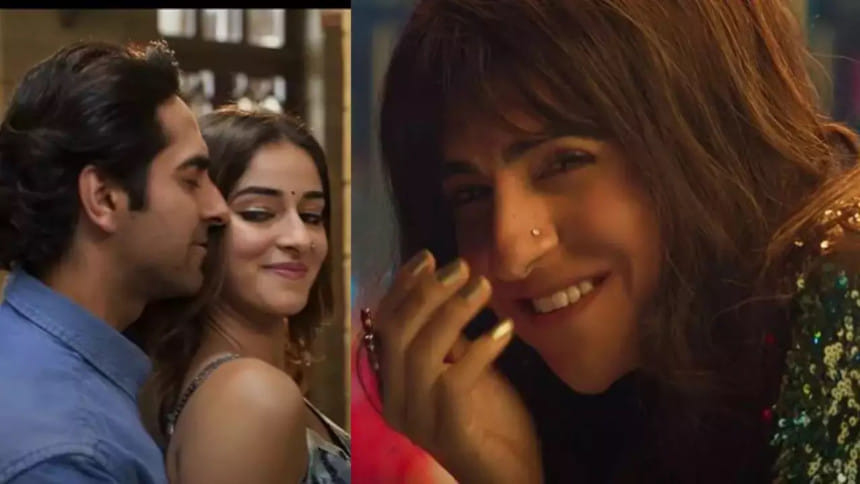‘Dream Girl 2’: An erroneous comedy

"Dream Girl 2", regarded as a spiritual successor to the 2019 comedy of the same name and starring Ayushmann Khurrana, recently arrived on Netflix with a bolder script and a messier execution. Director Raaj Shaandilyaa reintroduces Pooja, the character from the first film, in a more audacious avatar. While she won over everyone's hearts through her voice in the original film, this time, she emerges from the phone as a real, breathing 'woman.' Unfortunately, despite Ayushmann's swagger and sass as Pooja, the sequel falls short in terms of its storyline.

Much like any other sequel, the film retains the majority of the original cast, making an obvious attempt to further explore its ideas about 'gender norms.' It takes us through the story of Karam, disguised as Pooja, who wishes to marry Pari (Ananya Panday). Following the typical Bollywood trope of a 'rich girl and poor guy' romance, Pari's father asks Karam to have a sizable bank account, a secure future, and to pay off his father's debts. Now, following the advice of his father and best friend, Smiley, Karam disguises himself as a bar dancer, Pooja, in an attempt to earn some quick money. If that weren't enough, Smiley wants to marry Sakina, the daughter of a Muslim patriarch (Paresh Rawal) who prioritises getting his depressed elder son married first. Out of the blue, Smiley persuades Karam to pose as a psychiatrist, and the next thing we see is Pooja and Shah Rukh getting married.
To add more drama and confusion, there is a list of other suitors for the 'dream girl' Pooja, one of whom is the bar owner and her boss. As the story progresses, it becomes too convoluted to put into words; it is an erroneous comedy that relies on old jokes and some witty one-liners. I believe it heavily depends on the charm of the first film and second-hand humour, most of which does not land well. While it might make you laugh, it is probably due to Ayushmann's antics and the general silliness of the film. The pace oscillates from really fast to really slow sometimes, and the writing gets weak in places when Pooja is not being Pooja.
Ayushmann, in both his roles as Karam and Pooja, is the only consistently delightful element. He seems too good to be true, especially in the scenes where he portrays Pooja, which fortunately, are numerous. He charms with everything—his body language, makeup, dancing moves, and the ability to speak in a perfect feminine voice. Thankfully, he never treats crossdressing as vulgar, with the exception of a couple of poorly written scenes. The other characters lack proper screen time to establish a meaningful connection, and with the large cast, things get really chaotic in the second half.

What makes the humour questionable is one particularly problematic dialogue where a character implies that mental health is a construct for the rich. This dialogue not only disregards depression as a legitimate condition but also adds to the preexisting social stigma, implying that it's all 'just in our minds.' The film also underscores the importance of actual therapy and reinforces a very wrong idea that marriage could magically cure depression caused by heartbreak. While it can be argued that it's harmless comedy, filmmakers need to consider the impact of such expressions on the general public. Moreover, it raises valid concerns about how 'harmless' comedy should actually be when most of the other jokes make fun of a character's age or body type.

That being said, the film attempts to present an honest portrayal of a man who challenges current social norms by cross-dressing as a woman, causing discomfort in society. It brings the idea of cross-dressing into the mainstream, only to use it as a comedic gimmick rather than as a powerful social statement. It can be seen as yet another failed attempt at drag art, where men acting as hypersexualized women are considered humorous rather than disrespectful. While Ayushmann delivers a lengthy monologue towards the end, it comes across as apologetic and not change-inducing. This is yet another instance of irresponsible humor that hurts the sentiments of transgender individuals and other women from the protagonist's profession, who are represented through the lens of a director who finds it all extremely funny.
In conclusion, "Dream Girl 2" is a slapstick comedy that follows in the footsteps of the first instalment but lacks the coherence and relevance it aims to create. With a few old Bollywood references and clever puns, it shines only through Ayushmann's performance."

 For all latest news, follow The Daily Star's Google News channel.
For all latest news, follow The Daily Star's Google News channel. 









Comments